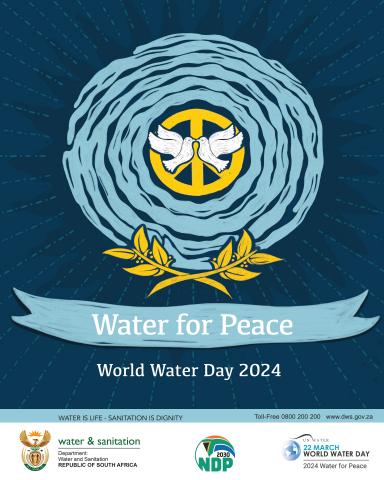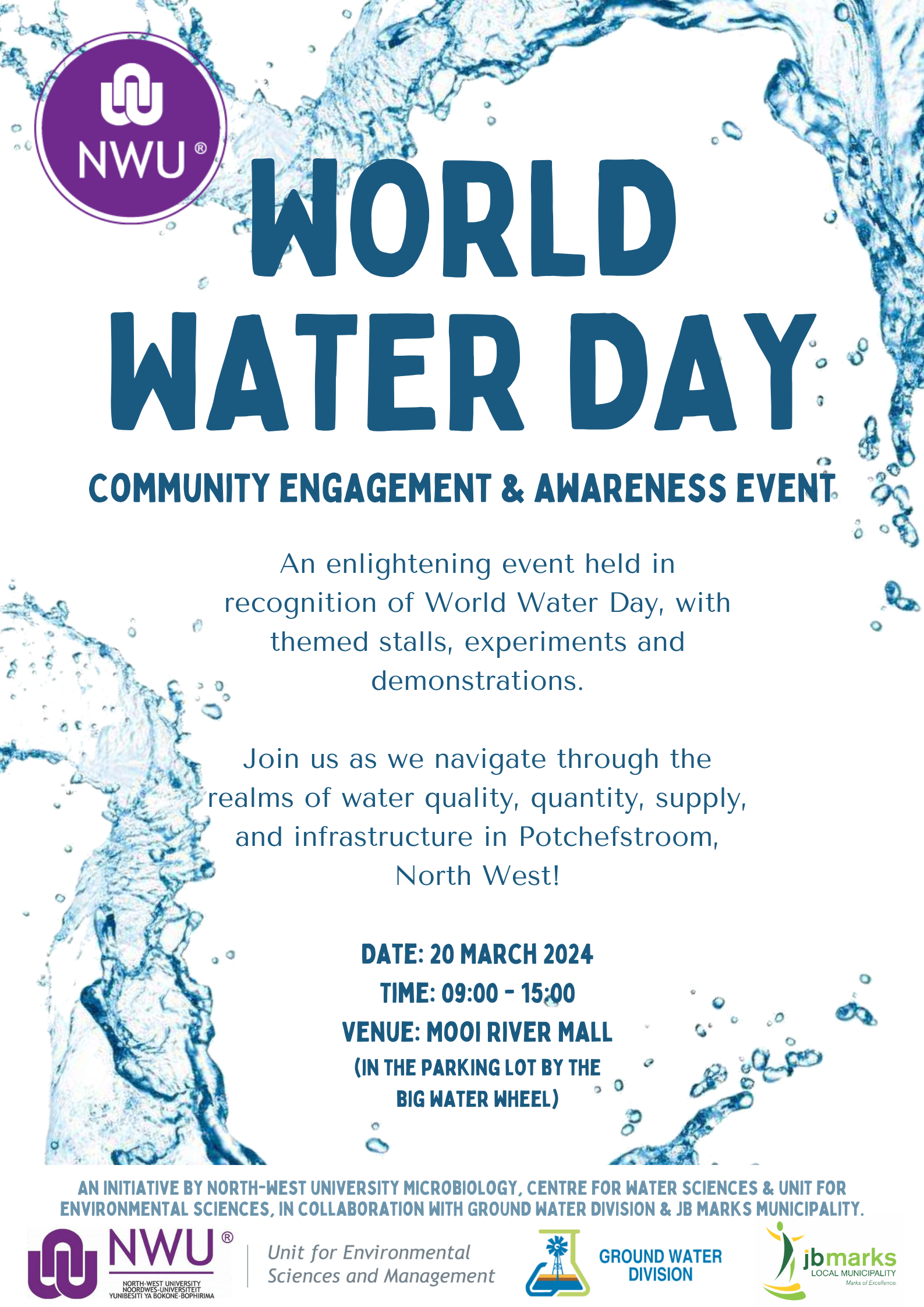World Water Day 2024

World Water Day, held on 22 March every year since 1993, is an annual United Nations Observance focusing on the importance of freshwater.
This day is an opportunity to learn more about the issues of water and take action to make a difference which includes water scarcity, inadequate water supply, water pollution, lack of sanitation, and the major issue of climate change. This day sheds emphasis on the disparities in access to WASH services, which are crucial to ensuring that everyone has access to clean water and sanitary facilities. World Water Day is devoted to raising awareness of the problems with water that affect people in practically every nation. Created by the United Nations, the goal of World Water Day is to bring aid to people who truly need it across borders.
World Water Day celebrates water and raises awareness of the 2.2 billion people living without access to safe water. It is about taking action to tackle the global water crisis. A core focus of World Water Day is to support the achievement of Sustainable Development Goal 6: water and sanitation for all by 2030.
Every year, UN-Water — the UN’s coordination mechanism on water and sanitation — sets the theme for World Water Day. In 2023, the focus was on Accelerating Change. In 2024, the theme will be Leveraging Water for Peace.
Groundwater for Peace
A message from the President of the International Association of Hydrogeologists in commemoration of World Water Day 2024.
If the earth has a secret, underground pulse, that pulse is groundwater. It is this heartbeat that half of humanity relies upon and is the sole source of water for almost a third of the world’s population. Groundwater is the circulatory system under our agricultural fields and the lifeblood of many industries. Its veins and arteries reach cities, and perhaps of equal importance, isolated rural communities with no other source of water. Groundwater seeps from the banks of rivers and lakes feeding approximately half of our surface water resources. Its capillaries, and capillary fringes, not only connect with rivers and lakes, but also issue forth into springs and wetlands. In doing so groundwater supports ecosystems around the world. Truly, groundwater is earth’s last lifeline in the face of the onslaught of climate change and population growth. This invisible resource is essential to the survival of our planet and to the millions who desperately thirst for peace.
With nearly 500 transboundary aquifers and aquifer systems identified, but few international agreements for collaborative groundwater use, there is much work to be done. Groundwater professionals can help ensure a conflict-free and harmonious future. By informing and facilitating cooperative interaction on this hidden, subterranean pulse of the planet, we can move the world forward toward peace.
RESOURCES
https://www.ipsnews.net/2024/03/pollution-threat-groundwater-resources/

This article by Thokozani Dlamini (SADC-GMI Communication & Knowledge Manager), published by IPS News.
PRETORIA, South Africa, Mar 12 2024 (IPS) - Groundwater pollution significantly affects the prevalence of waterborne diseases. This form of pollution occurs when hazardous substances, such as pathogens, chemicals, and heavy metals, seep into underground aquifers, the primary source of drinking water for approximately 70% of the 250 million people living in the SADC region. READ MORE

In this Water Engineering & Management publication, GWD members Eunice Goossens, principal hydrogeologist at SRK Consulting , and SRK Consulting senior hydrogeologist Lizette Goosen share, warn and advise on good groundwater practices, some quotes from the article:
- To drill more boreholes and pump from aquifers to increase water supply,... is often not carefully controlled and monitored – presenting significant risks and inefficiencies that we can ill afford.
- There are growing concerns about how groundwater is being exploited without due regard for the future,” she explained. “This is a finite resource which can be compromised by poor practices and lack of expertise.” She also referred to the ongoing employment of under-qualified contractors to drill and equip boreholes, without the necessary knowledge or professional supervision.
- Sourcing and management of groundwater is technically complex, and is also subject to stringent standards and regulations – many of which are still not observed. Goossens highlighted that strong engineering experience needs to be applied to borehole establishment and management, including the input of qualified hydrogeologists. Each of these projects demands a business plan to be developed by a registered engineer, using a desktop study by an experienced hydrogeologist.
- Goosen stressed that it is not sufficient to measure only the ‘blow-yield’ once the drilling is complete. Rather, it is crucial to undertake a scientific pump test on the borehole – to ensure that testing is conducted to the standards demanded by the Department of Water and Sanitation (DWS). Goosen added that the initial pump testing is just a snapshot of the aquifer capacity, and longer term monitoring is still required. The data gathered over weeks, months and years is a necessary window into the aquifer’s health and performance.
- She also emphasised that borehole users should embrace the government’s efforts to monitor groundwater usage, by registering on the National Groundwater Archive – which can be found on the DWS website.
https://www.dws.gov.za/events/nww2024/default.aspx
https://universepublicschool.org/blog/world-water-day-2024/
https://www.unwater.org/our-work/world-water-day
https://www.twinkl.co.za/event/world-water-day-south-africa-2024
LOCAL INITIATIVES
